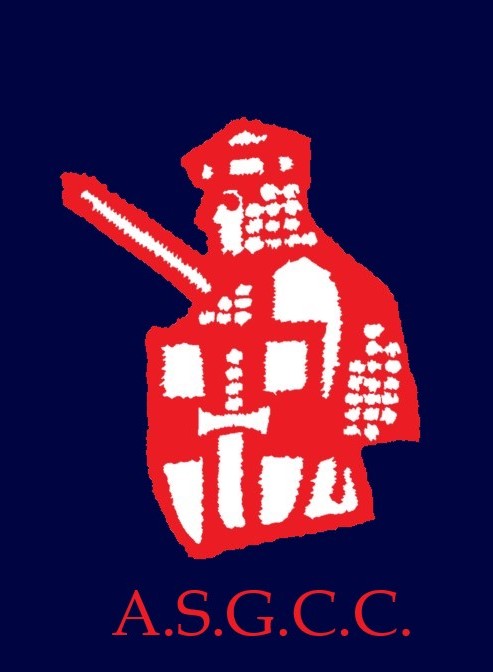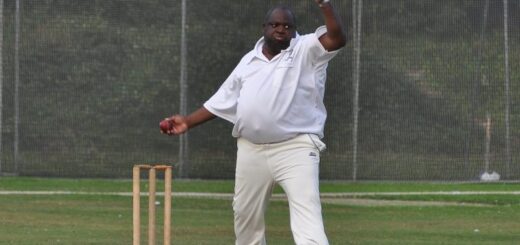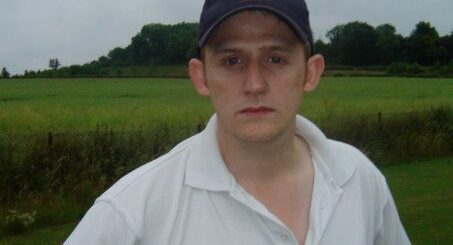John Moody – Forever in our thoughts – How we need to talk more about mental health
The John Moody Trophy
The finale for Anson’s cricket season comes upon us this Sunday. Our final fixture of the season against the Gary Barnacle XI is a special one as we play this match to commemorate the passing of our friend John Moody.
As usual, The Gary Barnacle XI will be a group of players invited to partake in this once a season match. People associated with Hornchurch Cricket Club, where John had played through the various age group levels, will make up the team. All will be friends of John from about the same age groups or had coached him and helped him with his development as a cricketer. John’s dad, Alan, has also played these fixtures and should be playing again this year.
As John was playing for both clubs simultaneously at the time of his passing, we felt that it was fitting to play this fixture in his honour and for a trophy that bears his name. In Anson, we have also named our most improved player of the season trophy after John.
Opening the bowling for Anson
John only played 10 games for Anson, and I didn’t play in too many of these games myself. Tall for his age, John was a good seam bowler who bowled with a good bit of speed. He was fairly accurate, but it was the bounce he created that could make him a tricky bowler. Not all tall bowlers can get that extra bounce, but John had a knack of making the ball lift sharply from a good length. Couple that with the movement from the new ball and he was a real handful to face.
I remember this quite distinctly, having played against John in a way that would only happen in Sunday cricket. We played Archway Ladder in 2019, but they only had 10 players. We had a few extra players around that weekend and so John played for Archway, who particularly needed bowling support. John opened the bowling, and I opened the batting for Anson. I think the runs I got were off the edge from a couple of balls that leapt at me. I had only scored six when John bowled another one that he managed to nip back to clean bowl me.
Many of the scalps that John picked up were much more impressive than mine. John opened the bowling for us, so amongst his 12 Anson wickets will probably be some of the better players we played against. He had best bowling figures of 3-34 taken against Maylands Green in July 2018. He took 2 wickets for a miserly 11 runs against them the following June, out-bowling his friend, Freddie Barnacle, on both occasions. His bowling average of just under 20 shows a decent return for the wickets he took.

Anson Material
Anson St George doesn’t have a recruitment policy. As a casual Sunday cricket side, cricketing ability, or lack thereof, has never been key to finding new members. Camaraderie, friendship, and personality have always been determining factors of whether someone fits into the club or not. As I’ve mentioned before, being able to enjoy the company of the 10 other guys you’re playing with on each Sunday is always the most important thing. I think therefore, the best accolade that I can give to John is to say that he was definitely Anson material. This certainly would have been thought of and said at the time John was playing for us.
An important issue we must talk about
Tragically, John completed suicide in March 2020. I remember the news hit me like a tonne of bricks. It was hard to imagine what Alan, and John’s mother, Bernadette, went through at that time, and still do today. I know he is still constantly in their minds.
The match on Sunday gives us a great opportunity for us all to remember John and celebrate his life. It also gives us an opportunity to reflect on issues concerning mental health, and particularly suicide.
Suicide is a difficult topic for people to talk about and can make people feel uneasy discussing it. If it comes up in conversation some people’s reaction might be to try and change the subject. However, it is important to talk about suicide because it is a major public health issue around the World. Suicide is the biggest killer of people aged 35 and under in the UK. Suicide causes a ripple effect where friends and families struggle to understand and make sense of their loss.
The most important reason why we must talk about suicide comes from understanding that suicide is preventable. Most suicidal people don’t want to die. They simply don’t want to live with the pain they experience any longer. The chances are that a person does not have to die to stop that pain.
Even the most severe mental health issues are treatable
There are many reasons why people are suicidal, but poor mental health and depression are a big risk factor. I completed the mental health first aid training a few years ago. The most important thing that I took away from that course was knowing how treatable depression is and how people can, and do, recover from even the most severe mental health conditions.
Treatment and recovery are different for everyone. There is no one size fits all approach. Recovery from symptoms can be quicker for people who feel supported by those who are around them. This is where sports clubs and groups can play an important role. It’s good to see Hornchurch CC have set up a health and well-being board in the pavilion. It’s good that they are happy to face the subject head on, engage with their members on the subject, and help provide an environment where people might feel supported. This is all good stuff.
Knowing how to help someone, or even identify someone who needs help can be very difficult. Getting people to talk about their mental health can be very difficult too. People might be reluctant to open up about their mental health because they don’t want to push their burdens on to other people or be thought of less by others. People might be reluctant to offer support or talk to people affected by mental health concerns because they are worried they might say something wrong or make the situation worse.
Supporting each other and supporting ourselves
Most of the time, when someone wants to speak with a friend or a loved one about their mental health, they are not expecting you to be a counsellor or psychologist. They just want someone to listen. If all you can offer is to listen and communicate non-judgementally then you are only doing good.
You can offer more support if you want to. If you’re confident enough with the conversation, and you think it is appropriate, encourage them to seek professional help. If they talk about suicide, you can talk with them about it. This can actually lower someone’s anxiety and can help them feel that someone is taking their pain and situation seriously. Don’t promise to keep it a secret if you’re genuinely concerned about someone’s safety. Get help as soon as you can.
If you’re trying to support someone else, then make sure you can get the help you need as well. If you’re helping someone through a traumatic time, then make sure you look after your own mental health. Talk to someone about your experience and feelings. Just make sure that if you promised your support to the other person was confidential that you don’t break this, unless you are concerned that they were an immediate risk to themselves or others.
I have provided some snippets of information and ideas from the Mental Health First Aid Manual. It really is a small sample that might come in useful if you find yourself in a position where you could support someone. I would really recommend looking at the full training that they offer.

Where to get support outside your group
Hopefully some of the work Hornchurch are doing here might give people a little bit more confidence to either open up about these things or offer support. Unfortunately, no matter how many times you can remind people to ‘just talk’, the barriers that people perceive on opening up about mental health can remain.
If people feel that that they need support and don’t want to disclose anything to friends and family, or even if they do, there is a lot of help available. Speaking to a GP is always a good place to start. If people don’t want to speak with their GP, then they can refer themselves to NHS psychological services via the NHS website.
If someone is in crisis and needs to speak with someone straight away, then organisations such as the Samaritans have trained volunteers who are available to listen and talk with you at any time of the year. You can call them for free on 116 123. Papyrus, which is a charity seeking to prevent suicide of people 35 an under has a similar phone service called Hopeline which you can call on 0800 068 41 41.
There is a wealth of online services and websites with information, self-help guidance, podcasts, campaigns, phonelines and apps. There are too many to list all of them but you might want to check out Mind and the Campaign Against Living Miserably (CALM).
These are all useful resources to also share if you are looking to support other people.
5 Steps to Wellbeing
Finally, even if you aren’t personally afflicted by mental health issues, it’s very important for you to stay on top of your mental wellbeing and look after your mental health in the same way you would with your physical health. Again, there are lots of websites with this sort of information. One of the best ones that I would recommend is the NHS 5 steps to mental wellbeing.
John’s legacy
I know that there will be a lot of people that will want to play in the game on Sunday. There are a lot of people who will want to honour John. I know for some that this will be their only game of cricket for the season, such is the importance we put on this day.
I know that in the past Lee, Gary, and Hugh Henry have helped raise money through this match for charities such as Sibling Link. When John passed away, one of his friends, Harry Blue, set up a fundraiser for the Young Minds Trust. Harry was hoping to raise £500 by taking part in a mud run, named after John. He succeeded in raising over £4,000 from 173 donations.
John’s friend Joe Bilby ran the London Marathon in 2023 in John’s name for Mind. Another friend and cricketing companion, Brandon Collard, did the same in the London half marathon this year. Next year, John’s sister Isabel will also run the London Marathon for Mind in John’s name. Clearly the impact John had on others during his life was tremendous.

No one in Anson truly dies completely. Through the history, and hopefully through these blogs, the deeds and memories of all Anson players will be immortalised. John’s name will live on.
As Harry said on his fundraising page. “John was a sincere and uplifting young man who served a great passion for the sporting world. His efforts in cricket and rugby shall be remembered dearly by his peers who played aside him. From his first wicket to his last try.”
Rest in peace John. I hope we do you proud on Sunday. I know that you’d want an Anson win really.







Amazing jim another great piece. I have a lump in my throat and a tear in my eye. Thank u
Truly beautiful post there Jim, as someone who’s also completed the MHFA training I honestly hope to make a difference to more people around me.
Thinking of John🫶🏻
Another fantastically written piece Jim. Also brought a tear to my eye.
A stunning composition Jim
I, like Lee had a tear in my eye reading this.
It shows the importance of trying to be a good listener and helping others.
I will be one of the LUCKY ones playing on Sunday and I know it will be a good game in honour of John.
You are certainly right in saying that he will never be forgotten